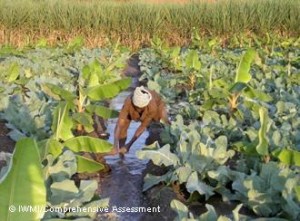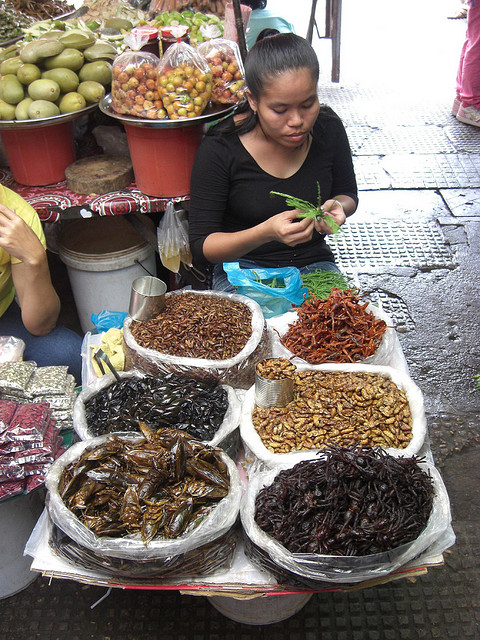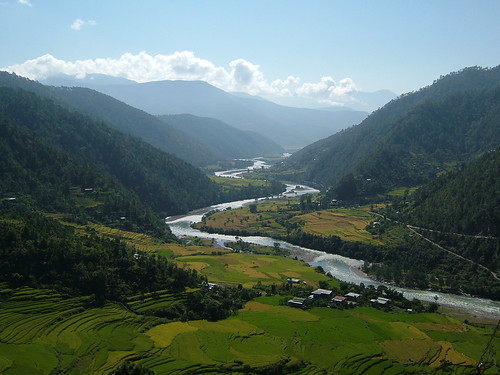Search Results for Tag: agriculture
Stop food waste for climate’s sake
No question, food waste is not good at all. Now, the FAO expressed in numbers how bad it really is – for climate and environment. So, if you need some astonishing reasons to change something – here you go:
In total, one third of the world’s food production is wasted or lost each year.
The carbon footprint of the food wasted is 3.3 gigatons of CO2 equivalent – which makes food waste the third biggest CO2 emitter after the US and China.
The fresh water we are wasting by wasting food equals 250 km³ – three times the volume of the Lake Geneva and enough to meet the water demand of all people in the world.
Growing the amount of wasted food occupied a 1.4 billion hectares of land which equals about 30 percents of the world’s agricultural land or the land area of China, Mongolia and Kazakhstan altogether.
If you are more a economist kind of person: the economic loss that comes along with this extensive food waste is 750 billion US-Dollar or in other words: the GDP of Switzerland, one of Europe’s stablest economies.
If you know think this it not your problem to solve but a task for companies and politicians – you are, well, not wrong, but not right neither. Here’s a little video produced by the FAO that shows, what can be done.
Eat (more) insects!
Ever wondered what you could do to fight climate change, but never came up with a proper solution? A quiet common way is to switch to a vegetarian diet, as meat production accounts for about 30 per cent of greenhouse gas emissions. If you can’t do without your daily portion of proteins (aka meat) – here might be a convenient idea: Eat more insects! This is not a suggestion of some weird person being anxious about animals with too many legs and wants them to go extinct. It’s a seriously meant proposal from the UN to feed the booming population all over the world.
If a simple recommendation is not good enough for you, but you need some convincing numbers- the New Scientist has put them down:
To produce 1 kilogram of beef, for example, you need 10 kg of feed, whereas 1 kg of crickets requires just 1.7 kg. What’s more, 80 per cent of a cricket is edible compared with just 40 per cent of a cow.
In consequence, much less land would be needed to grow food for our food (as insects could even grow on kinds of waste) – we would get more food from the same amount of grain and would thereby cut pollution.
This kind of diet is already familiar in some parts of the world, yet the most consumed are beetles, ants and bees. In total 1,900 insects have been identified to be suitable for human diet.
But for lots of people it is quite unthinkable to take a bite. What’s your opinion: Is the argument of sustainability strong enough to change people’s minds?
Going Organic in Bhutan
It’s an ambitious goal, but Bhutan’s government thinks it’s possible: at the Rio 20+ climate conference, Bhutanese Prime Minister Jigmi Thinley announced that his country will become the first in the world to have a completely organic agricultural system. While in Rio, Thinley made a solid case for sustainable farming, pointing out that the earth loses 24 billion (yes, billion) tons of topsoil every year – and 30% of the world’s arable land is becoming unproductive because of erosion.
Thinley said his new “National Organic Policy” is especially important in Bhutan, where two-thirds of the population works in agriculture. “Humankind has the ability to feed everyone on earth healthily and sustainably,” he said. NPR took a look at the pros and cons of the debate and brought up an important issue: farmers that have depended on chemical fertilizers for years will probably not be happy to give them up so quickly. But experts say it is possible.
So will this tiny nation set a mammoth example for the rest of the world?
Photo Credit:
CC BY-SA 2.0: sprklg/flickr.com
Sustainable Agriculture: A Recipe

By the year 2050, there’s expected to be 9 billion people living on our planet. Can we feed all those people without destroying the earth? That’s the question a new report is trying to answer. A team of researchers from the U.S., Canada, Sweden and Germany worked together on a major article that will be published in Nature journal in a few days, and their conclusion is this: the only way forward is to create a global plan for sustainable agriculture.
What is that plan? According to the researchers, it will include key steps like halting farmland expansion into our tropics, using existing farmland more effectively, changing our diet patterns and cutting down on the food waste we produce. And those steps are crucial to keeping the planet healthy. Farm land and pastures now cover about 40% of our planet and agriculture accounts for a third of all the emissions produced around the globe. If there’s a sustainable solution to the future of farming and producing food, it could mean a major breakthrough for our environment.
Dossier: Harnessing the energy of water
Hydroelectric power plants can generate vast amounts of electricity. The technology is emissions-free, reliable and safe. But large dams and hydropower facilities can sometimes create more problems than they can solve. Learn more in the latest GLOBAL IDEAS multimedia dossier http://bit.ly/GI_dossierHydro

















Feedback